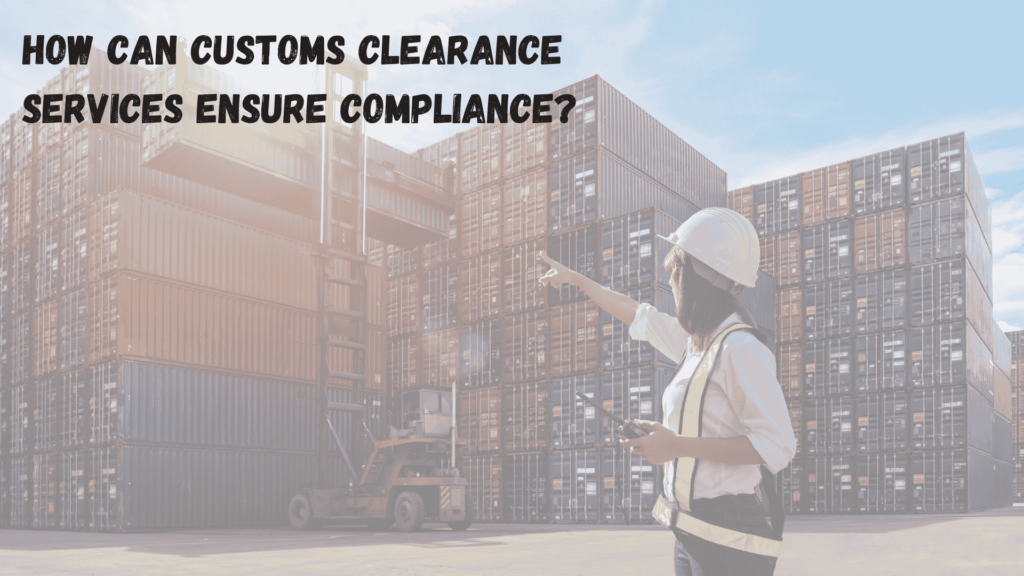Customs clearance is a critical aspect of international trade, ensuring that goods move across borders in full compliance with legal regulations. In any business dealing with imports and exports, adhering to customs regulations is essential to avoid delays, penalties, and other legal issues. Customs clearance services play a vital role in making this process smooth and efficient.
Note: With years of experience, Forward Air Cargo has been a trusted provider of customs clearance services. They guided clients through every step of the process, ensuring compliance and speed. If you’re looking for dependable customs clearance services, contact Forward Air Cargo now for efficient solutions tailored to your needs.
What Is Customs Clearance?
Customs clearance refers to the process of complying with the regulations and requirements set by a country’s customs authority for the import or export of goods.
The Role of Customs Clearance Services
Customs clearance services act as intermediaries between businesses and customs authorities, helping companies navigate complex import and export regulations. These services are offered by customs brokers, freight forwarders, and logistics companies, and they ensure that all legal obligations are met, reducing the risk of shipment delays, fines, or even seizure of goods.
1. Understanding Customs Regulations
Every country has its own set of regulations when it comes to importing and exporting goods. Customs clearance services are essential in helping businesses understand these rules. This involves staying updated on:
- Tariff codes and classifications: Determining the correct tariff code for goods is crucial for calculating customs duties and taxes. Incorrect classification can lead to delays or penalties.
- Import and export restrictions: Some items are restricted or prohibited from being imported or exported, depending on the country. Customs brokers ensure businesses are aware of such restrictions.
2. Ensuring Correct Documentation
One of the most critical aspects of customs compliance is submitting the correct documents to the customs authorities. These documents may include:
- Commercial invoice: This document outlines the price, quantity, and description of the goods.
- Bill of lading (BOL): This serves as proof of ownership and is a key document in the shipping process.
- Packing list: This document provides a detailed list of the contents of the shipment, including packaging specifications.
- Certificates of origin: Some countries require proof that goods are produced or manufactured in a specific location.
- Import permits and licenses: Certain products may require special permits or licenses for importation.
Customs clearance services help ensure that these documents are completed accurately and submitted on time to avoid customs delays or fines.
3. Classification and Valuation of Goods
For customs clearance to be successful, goods must be accurately classified and valued. Customs authorities use this information to calculate the applicable duties and taxes. Incorrectly classifying goods or undervaluing shipments can result in severe penalties.
Customs brokers use their knowledge of harmonized tariff schedules and valuation methods to classify goods under the correct tariff code.
4. Duty and Tax Calculation
customs clearance services assist businesses by calculating the duties and taxes that must be paid when importing or exporting goods. These charges are based on the classification and valuation of the goods, and they vary depending on the destination country.
Failure to calculate these fees correctly can lead to delays and extra charges for the business.
5. Handling Customs Inspections
Customs inspections are a common part of the clearance process, and they help ensure that goods comply with national laws. These inspections might include checking for the proper documentation, verifying the goods’ conformity with health and safety regulations, or physically examining the shipment to detect illegal or prohibited items.
Customs clearance services help prepare businesses for inspections by ensuring that all documents are in order and that the goods are properly packed and labeled. They can also help speed up the process by communicating with customs authorities and addressing any concerns.
6. Managing Compliance with Trade Agreements
Customs brokers can help identify applicable trade agreements and assist in the application of preferential tariffs. They also keep businesses informed of any changes to international trade rules that could impact their shipments.
7. Mitigating Risks of Non-Compliance
Non-compliance with customs regulations can lead to significant financial and legal consequences, including penalties, fines, or even the seizure of goods. By working with an experienced customs broker, companies reduce the likelihood of making costly mistakes or unintentionally violating trade laws.
In addition, customs clearance agents often provide advice and best practices for compliance, helping businesses stay up-to-date on regulatory changes that could affect their operations.
8. Streamlining the Clearance Process
Customs clearance services help businesses save time by streamlining the clearance process. They are familiar with the documentation and procedures required by different customs authorities, allowing them to navigate complex regulations with ease. They also work with customs authorities to ensure that all approvals are granted quickly and efficiently.
By speeding up the clearance process, businesses can avoid costly delays and ensure that goods arrive at their destination on time. This is especially important in industries where timing is critical, such as perishable goods, electronics, and automotive parts.
The Importance of Custom Clearance Services for Businesses
Customs clearance services are not just about meeting legal requirements; they are about creating a smooth and efficient international shipping process. By ensuring compliance, businesses can:
- Avoid costly delays: Customs clearance services help speed up the process, ensuring that shipments reach their destination without unnecessary delays.
- Minimize the risk of fines: By ensuring that all required documents and duties are correctly filed, businesses reduce the likelihood of facing fines or penalties.
- Maintain a good reputation: Businesses that consistently follow customs regulations and avoid issues with imports or exports will establish a strong reputation in the market.
- Optimize supply chains: Proper customs clearance ensures that goods are cleared quickly, reducing downtime and improving the overall efficiency of supply chains.
- Maximize cost savings: By taking advantage of trade agreements and ensuring correct valuation and classification, businesses can reduce the cost of importing goods.
Conclusion
Customs clearance services are essential for ensuring compliance with international trade laws and regulations. They provide businesses with the expertise and support needed to navigate complex customs processes, manage documentation, classify goods accurately, and calculate duties and taxes. By relying on these services, businesses can mitigate risks, avoid penalties, and streamline their global shipping operations, ultimately ensuring smoother trade and enhanced profitability.
For More Isightful Articles Related To This Topic, Feel Free To Visit: theguestblogs






